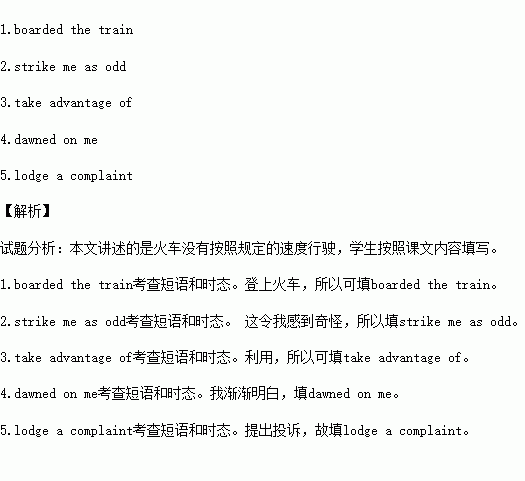题目内容
Lesson 37 NCE Book 3
… When I 1. , I could not help noticing that a great many local people got on as well. At the time, this did not 2. . I reflected that there must be a great many people besides myself who wished to 3. this excellent service. … But when the train dawdled at station after station, I began to wonder. It suddenly 4. that this express was not roaring down the line at ninety miles an hour, but barely chugging along at thirty. One hour and seventeen minutes passed and we had not even covered half the distance. I asked a passenger if this was the Westhaven Express, but he had not even heard of it. I determined to 5. as soon as we arrived.
练习册系列答案
相关题目

